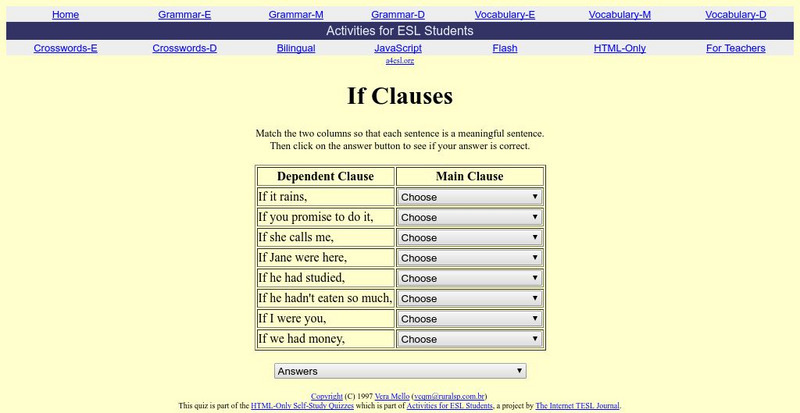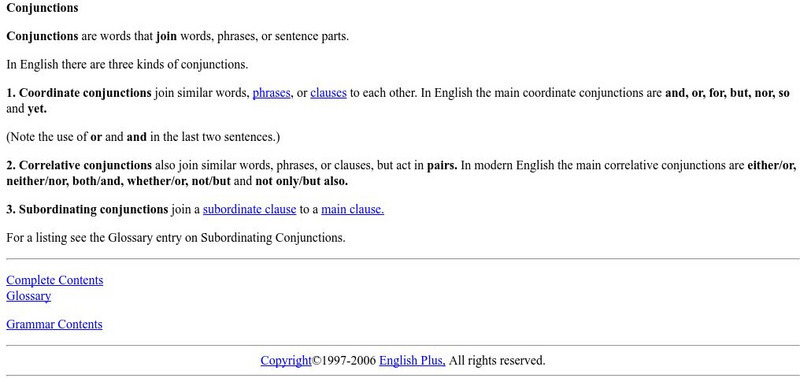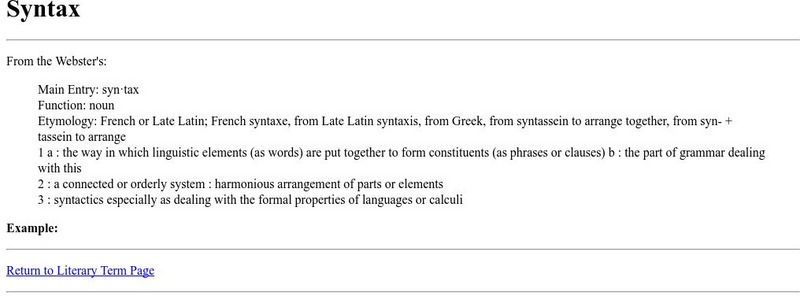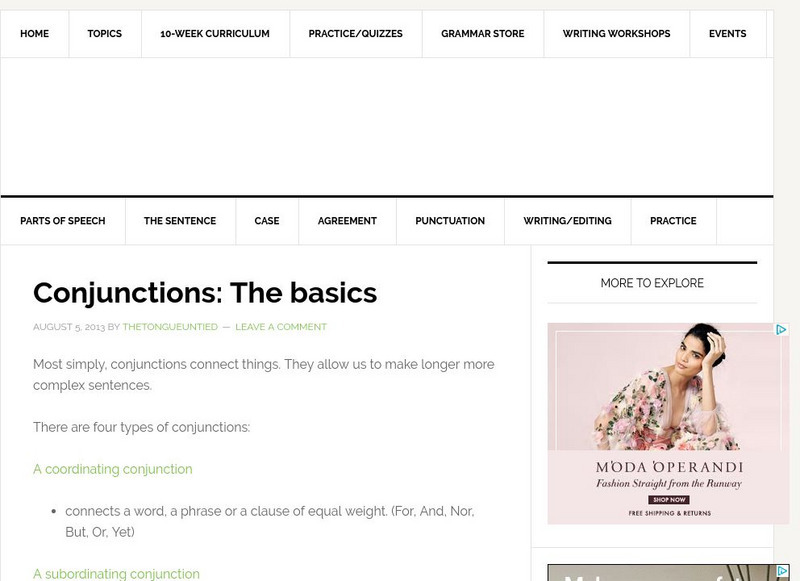Hi, what do you want to do?
Grammarly
Grammarly Blog: Such as Comma
This Grammarly Handbook resource provides information about comma rules related to the phrase such as in a sentence. Examples of such as in non-restrictive clauses are included.
University of North Carolina
University of North Carolina: Writing Center: Fragments and Run Ons
What are sentence fragments and run-on sentences? Explore this informative resource to review the meaning and some examples of these. Provides techniques for avoiding fragments and run-ons in writing assignments.
University of North Carolina
Univ. Of North Carolina: Seeing and Correcting Sentence Fragments and Run Ons
What is a sentence fragment and a run-on sentence? Explore this informative resource to review the meaning and some examples of these. Students and teachers can utilize this informative site to improve their writing skills.
Capital Community College Foundation
Guide to Grammar and Writing: Fragments and Types of Sentences
Ten questions asking students to identify the difference between complete sentences and sentence fragments.
Capital Community College Foundation
Guide to Grammar and Writing: Identifying Sentence Parts
The Guide to Grammar and Writing at this site provides an exercise of eight sentences where each word is hyperlinked to identify its role as a part of the sentence.
TESL Journal
Activities for Esl Students: If Clause Quiz
This exercise, intended for nonnative English speakers (ESL), provides practice constructing sentences with dependent and independent clauses. Offers solutions without detailed explanation.
Capital Community College Foundation
Guide to Grammar and Writing: Transitions Between Ideas
This tutorial teaches writing students how to share convincing in well-written sentences that are connected from one to the other--that is, they exhibit transition. W.9-10.1c cohesion/clarity/reason, W.9-10.2c cohesion/clarity/trans
PBS
Pbs Learning Media: How to Use Commas for Introductory Elements
Introductory elements are clauses, phrases, and words that appear before the main part of a sentence. Without commas, the reader may be confused. Use commas to indicate properly the who and the what. [0:40]
Capital Community College Foundation
Guide to Grammar and Writing: Run on Sentences
This site shows how to repair run-on sentences. Students and teachers will find this interactive resource helpful.
English Zone
English zone.com: Noun Clauses: Using Infinitives
An interactive exercise with four examples followed by ten sentences. Students complete each question by combining two sentences while using an infinitive phrase. When finished, students can check to see how many answers are correct.
English Plus+
Grammar Slammer Glossary: Conjunctions
This site offers a basic definition of conjunctions, with hypertext links to related terms (phrases, clauses, subordinate clauses, and main clauses). Addresses coordinate, correlative, and subordinate conjunctions.
Capital Community College Foundation
Guide to Grammar and Writing: Sentence Parts Quiz
This quiz is "a very basic quiz" that covers the various parts of a sentence (clause, gerund, adjective, preposition) in a ten question matching format.
Online Writing Lab at Purdue University
Purdue University Owl: Exercise : Commas After Introductions Exercise 3
This resource provides practice with writing and punctuating sentences with introductory elements.
The Tongue Untied
The Tongue Untied: Punctuation
This site features a punctuation practice exercise. Students have an opportunity to test their punctuation knowledge when they visit this interactive resource.
Ted Nellen
Cyber English (By Ted Nellen): Syntax
This is a glossary entry for the term "Syntax" including definitions and background for the term.
PBS
Pbs Learning Media: How to Use Conjunctions
Conjunctions are a part of a speech that connects different parts of a sentence, such as groups of words, clauses, or phrases. [0:41]
The Tongue Untied
The Tongue Untied: Conjunctions
Come and learn about all types of conjunctions when you visit this educational resource. This site gives a clear definition of the function of a conjunction. Use the "Turn the Page," function to learn more.
Trent University
Mas Arriba: El Subjuntivo (Clausulas Adverbiales)
Through this exercise, students practice writing short phrases in Spanish and conjugating verbs in the subjunctive form as they are used in adverbial clauses. Audio is available as a guide and pop-up answers to check for verification.



















